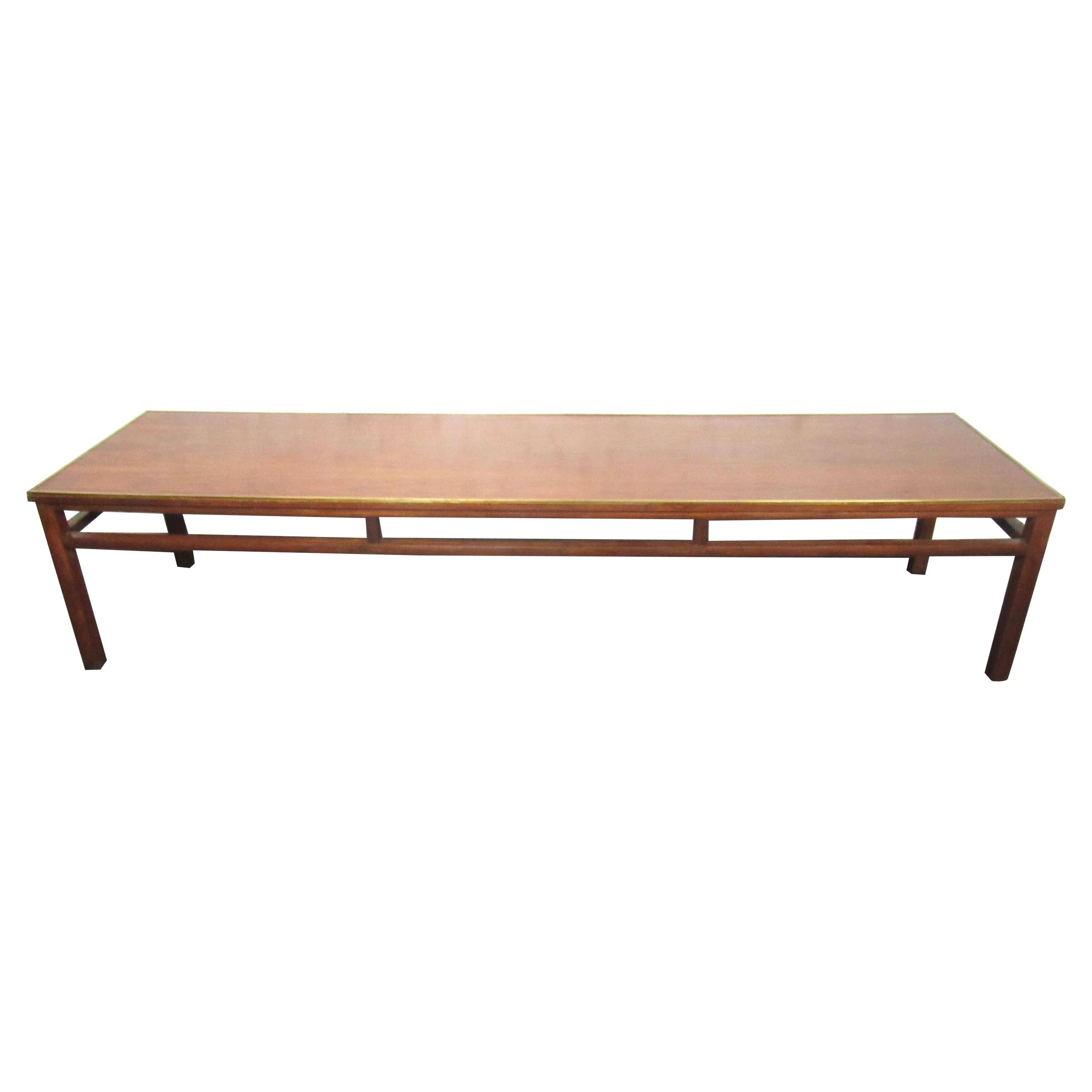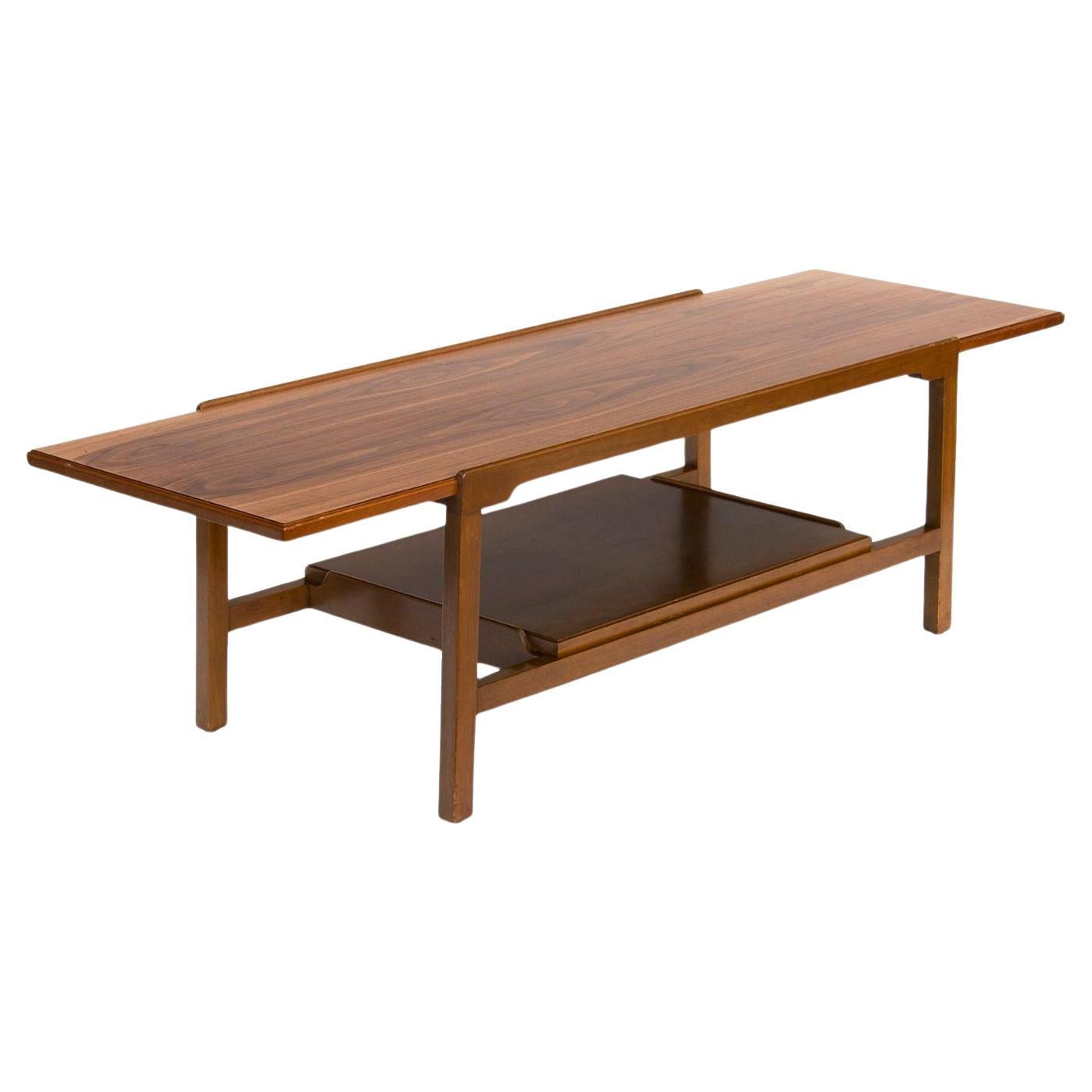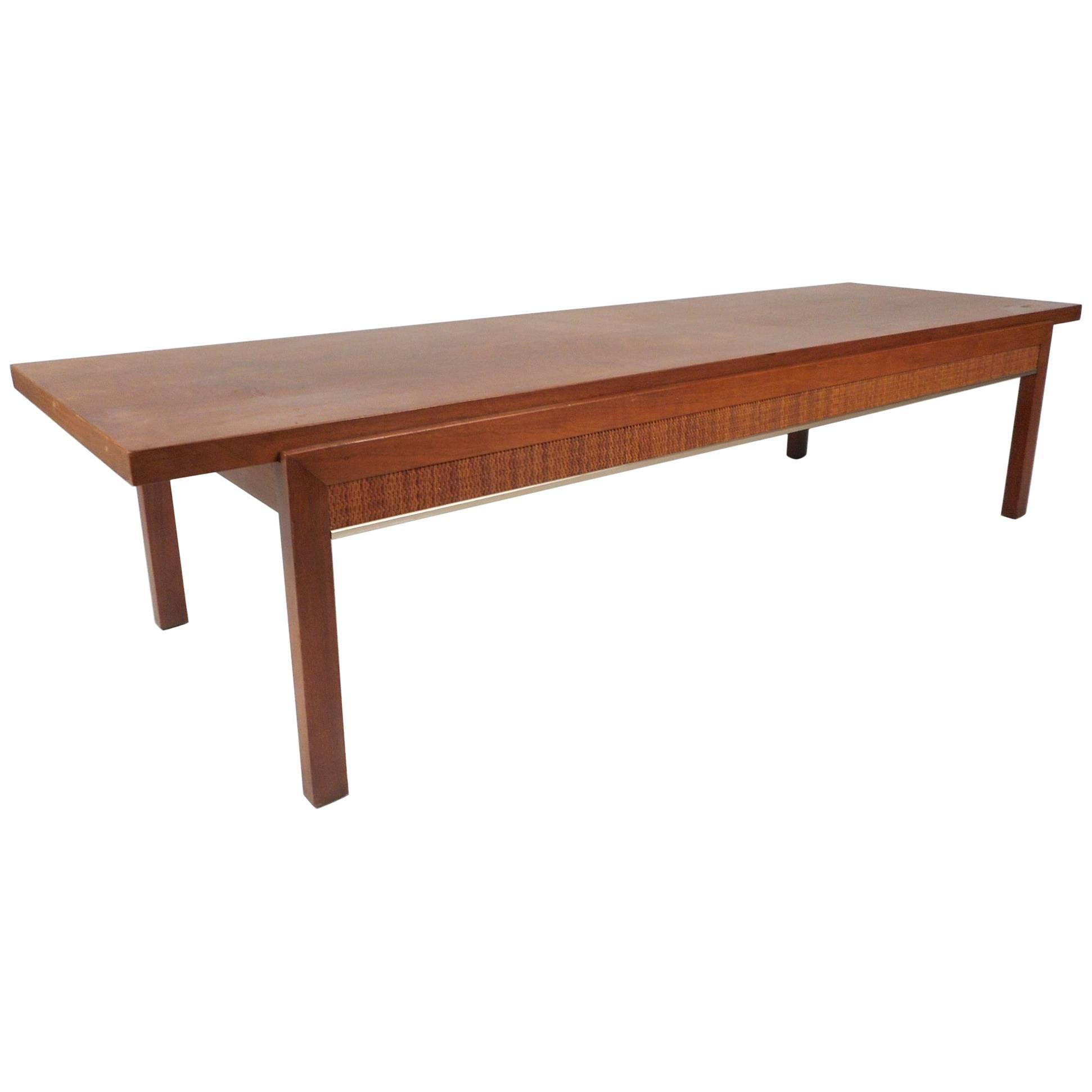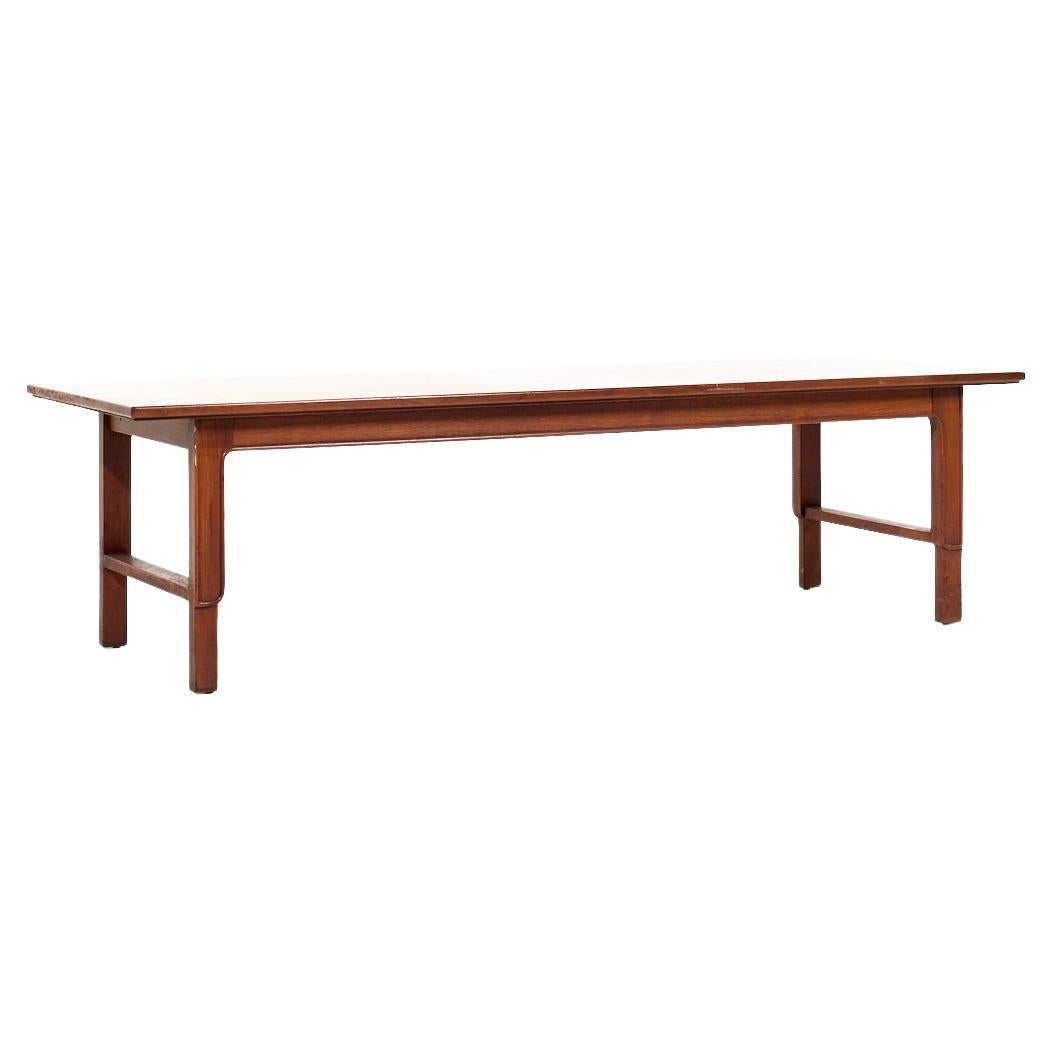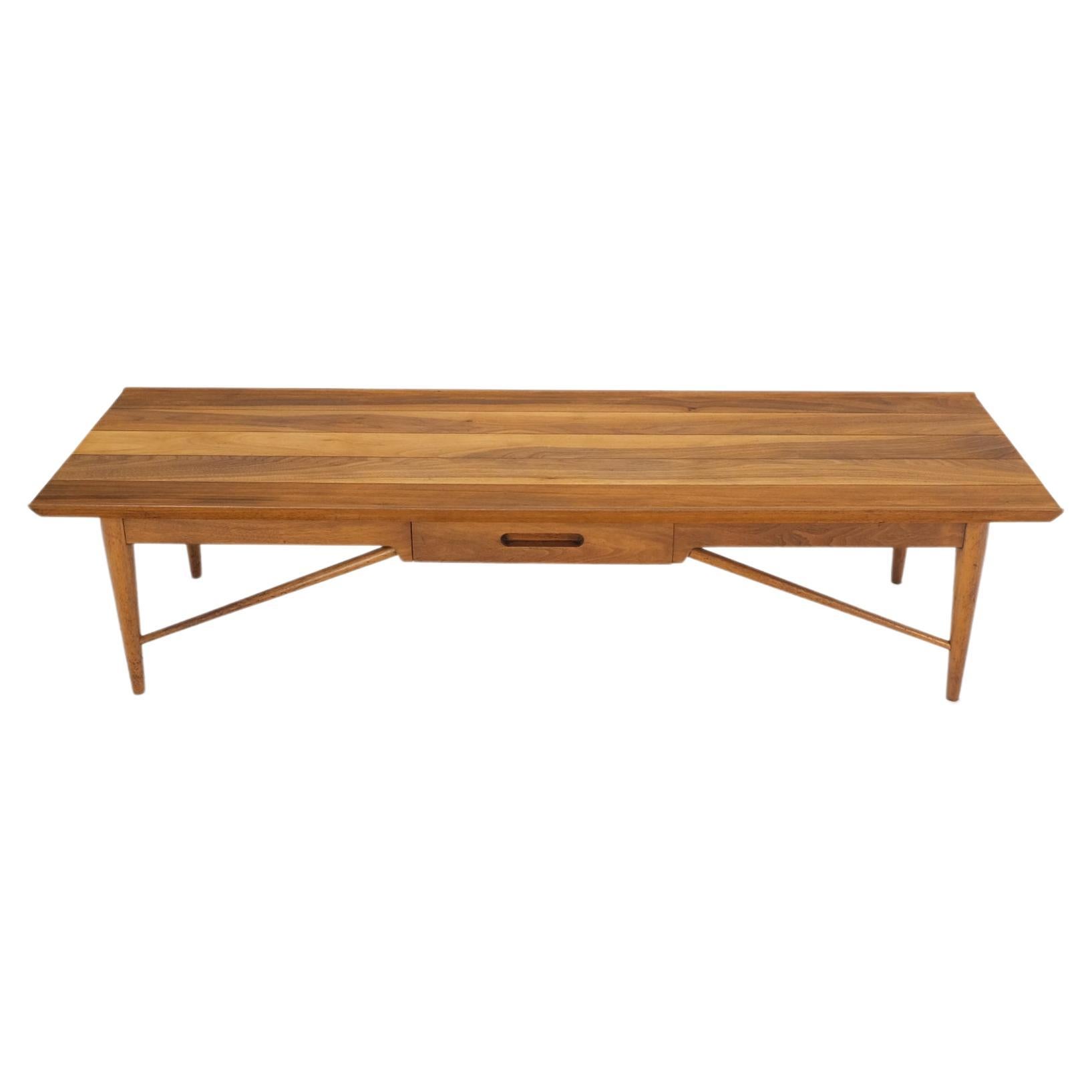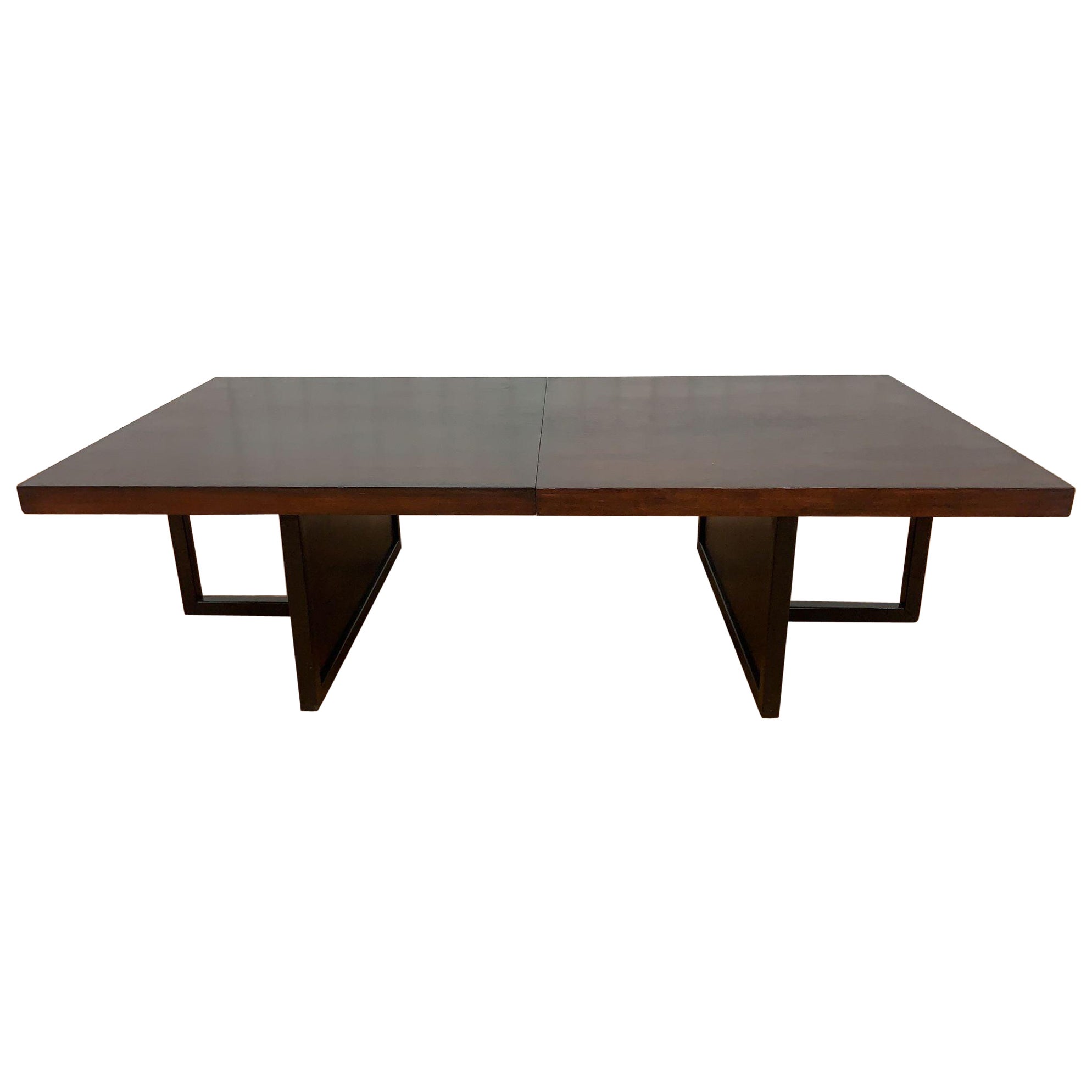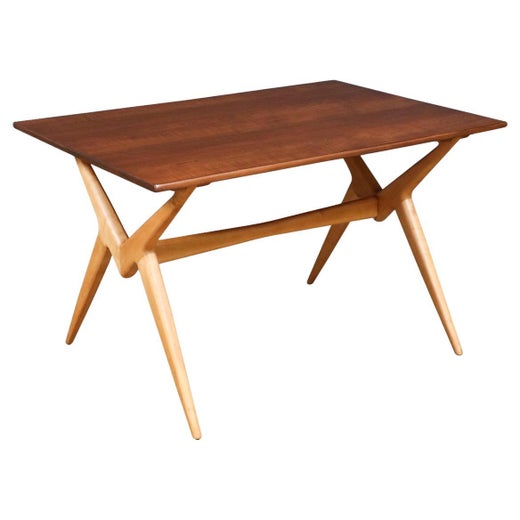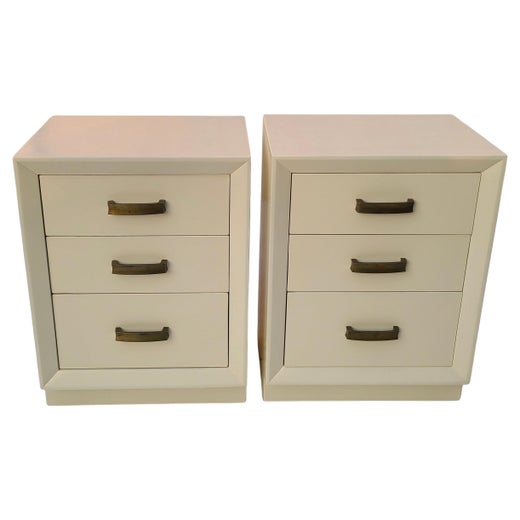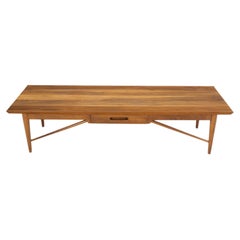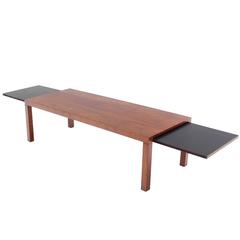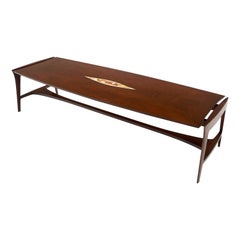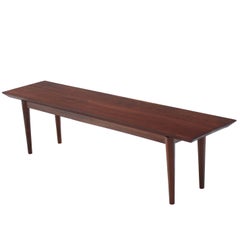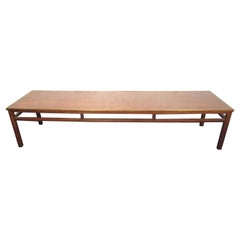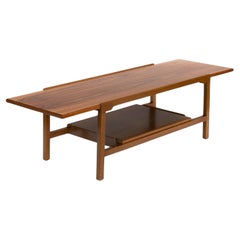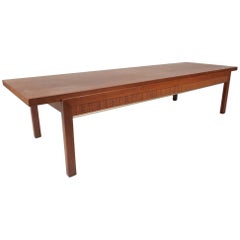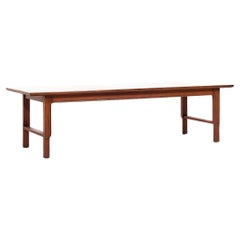Long Mid Century Modern Walnut Coffee Table with Two Drawers
About the Item
- Creator:John Stuart (Retailer),Johnson Furniture Co. (Manufacturer)
- Dimensions:Height: 14 in (35.56 cm)Width: 72 in (182.88 cm)Depth: 21 in (53.34 cm)
- Style:Mid-Century Modern (Of the Period)
- Materials and Techniques:Walnut,Lacquered
- Place of Origin:
- Period:
- Date of Manufacture:circa 1970s
- Condition:Wear consistent with age and use.
- Seller Location:Rockaway, NJ
- Reference Number:1stDibs: LU88376618583
Johnson Furniture Co.
Take a medal from the King of Sweden, a splash of the roaring twenties, and a series of talented designers and you get Johnson Furniture Co.’s elegant Art Deco and period-revival furnishings as well as a taste for why the Johnson name prevailed for over a century in American furniture manufacturing.
A wealth of forests rendered Grand Rapids, Michigan, a logging center during the 1800s. It eventually gained recognition for its furniture industry. The city became a destination for woodworkers who hailed from all over the United States as well as Europe, and Johnson Furniture Co. cofounder Carl Johnson, who had been recognized for cabinetmaking by the head of the royal family in his native Sweden, brought his royally acknowledged talents to America with his two brothers, Hjalmar and Axel in 1887. Together, they established Cabinetmakers Co. in Grand Rapids. In 1908, the brothers sold their start-up and founded Johnson Furniture Co.
Tom Handley, of the well-respected English furniture company Waring and Gillow, became an in-house designer with Johnson Furniture Co. in its early days. Handley would stay on as part of both the Johnson label and of Johnson-Handley-Johnson — a companion company that spun off from Johnson in 1922 — until his death in 1926. At the time, archaeological discoveries were all the rage. The greatest influence on Art Deco jewelry, for example, was the excavation of the tomb of King Tut in 1922, and some vintage Tom Handley designs were adaptations of Egyptian furniture. The brand specialized in a range of styles that included Art Deco, Chippendale, Queen Anne and more.
Acclaimed designer David Robertson Smith, who had made furniture in the Arts and Crafts style for the likes of Gustav Stickley, carried the Johnson Furniture Co. creative team into the early 1930s. Grand Rapids had by then become a thriving hub with respect to the mass production of furniture, and Smith’s sophisticated Dynamique line — a collection of coffee tables, cabinets and more in alluring woods such as walnut and mahogany and based on French furniture — was among the first mass-produced modern furniture made in America.
Johnson hired Lorenzo Rutili, a Carnegie Institute graduate who studied design in Europe, to lead the brand’s design division. Rutili oversaw 30 years of successful Johnson Furniture Co. collaborations with other notable designers including Paul Frankl, Eliel Saarinen, Bert England, J. Robert F. Swanson and Pipsam Saarinen Swanson. After wrapping up his tenure at Johnson, Rutili moved on to design furniture at Tomlinson in North Carolina.
During the 1960s, Kipp Stewart and Milo Baughman designed residential furnishings for Directional — a favorite of mid-century modern furniture enthusiasts — and Johnson produced these pieces, becoming the sole manufacturer for the North Carolina brand.
After a merger with Timberline Inc., Johnson Furniture Co. secured contracts for hotels, motels and university dormitories. In 1983, Johnson and Rose Manufacturing became RoseJohnson Inc. It was later purchased by La-Z-Boy.
On 1stDibs, find a collection of vintage Johnson Furniture Co. case pieces and storage cabinets, tables and other furniture.
John Stuart
Grand Rapids, Michigan, was once known as “Furniture City” for its local mass-production industry that flourished from the mid-19th century into the early 20th century, led by furniture manufacturers like John Stuart. Stuart’s eponymous company, which would build showrooms in New York and Philadelphia, designed and sold elegant reproductions of various furniture styles, including 18th-century French and English furniture as well as what we now call mid-century modern home furnishings built by European craftsmen in the entrepreneur’s Grand Rapids factory.
In 1845, a British cabinetmaker named George Widdicomb arrived in New York before moving to Grand Rapids. There he set up a small cabinet shop in 1857 with a dozen craftsmen, including his son John Widdicomb. The store quickly found success due to Widdicomb’s English training and the dearth of other quality furniture makers in the region. Toward the end of the 19th century, Grand Rapids had earned an international reputation as a leader of American furniture manufacturing, and while the Widdicomb family would navigate some difficulty after the Civil War, they emerged anew as Widdicomb Brothers and Richards, and then the Widdicomb Furniture Company. Widdicomb’s son started his own company in 1897, the John Widdicomb Company, and in 1929, the Grand Rapids–born John Stuart joined the company as a director.
Stuart, who had been in the furniture industry since 1913, was named president of John Widdicomb Company in the early 1940s and by then had formed John Stuart, Inc., with partner Herbert M. Rothschild. John Stuart, Inc.’s offerings included oak buffets and other dining-room furnishings crafted in the Tudor and Elizabethan styles, with cabinet doors and drawer fronts characterized by meticulously carved natural-world motifs and other decorative flourishes. Stuart also oversaw the design of reproductions of sophisticated walnut and mahogany Queen Anne side tables and dining chairs, with the latter marked by pronounced, vase-shaped curves in the back splats and cabriole legs. In 1952, the manufacturer and distributor’s founder sold the business, including the right to trade under his name, to the John Widdicomb Company.
Find a wide variety of vintage John Stuart furniture on 1stDibs.
- ShippingRetrieving quote...Shipping from: Hardwick, NJ
- Return Policy
More From This Seller
View All20th Century American Mid-Century Modern Coffee and Cocktail Tables
Walnut
20th Century American Mid-Century Modern Coffee and Cocktail Tables
Laminate, Walnut
20th Century American Mid-Century Modern Coffee and Cocktail Tables
Walnut
20th Century American Mid-Century Modern Coffee and Cocktail Tables
20th Century American Mid-Century Modern Coffee and Cocktail Tables
Travertine
20th Century American Mid-Century Modern Coffee and Cocktail Tables
You May Also Like
Vintage 1960s American Mid-Century Modern Coffee and Cocktail Tables
Walnut
Vintage 1960s American Mid-Century Modern Coffee and Cocktail Tables
Laminate, Walnut
Vintage 1970s Mid-Century Modern Coffee and Cocktail Tables
Cane, Walnut
Vintage 1970s American Mid-Century Modern Coffee and Cocktail Tables
Walnut
Mid-20th Century American Mid-Century Modern Coffee and Cocktail Tables
Walnut
20th Century American Mid-Century Modern Coffee and Cocktail Tables
Walnut
